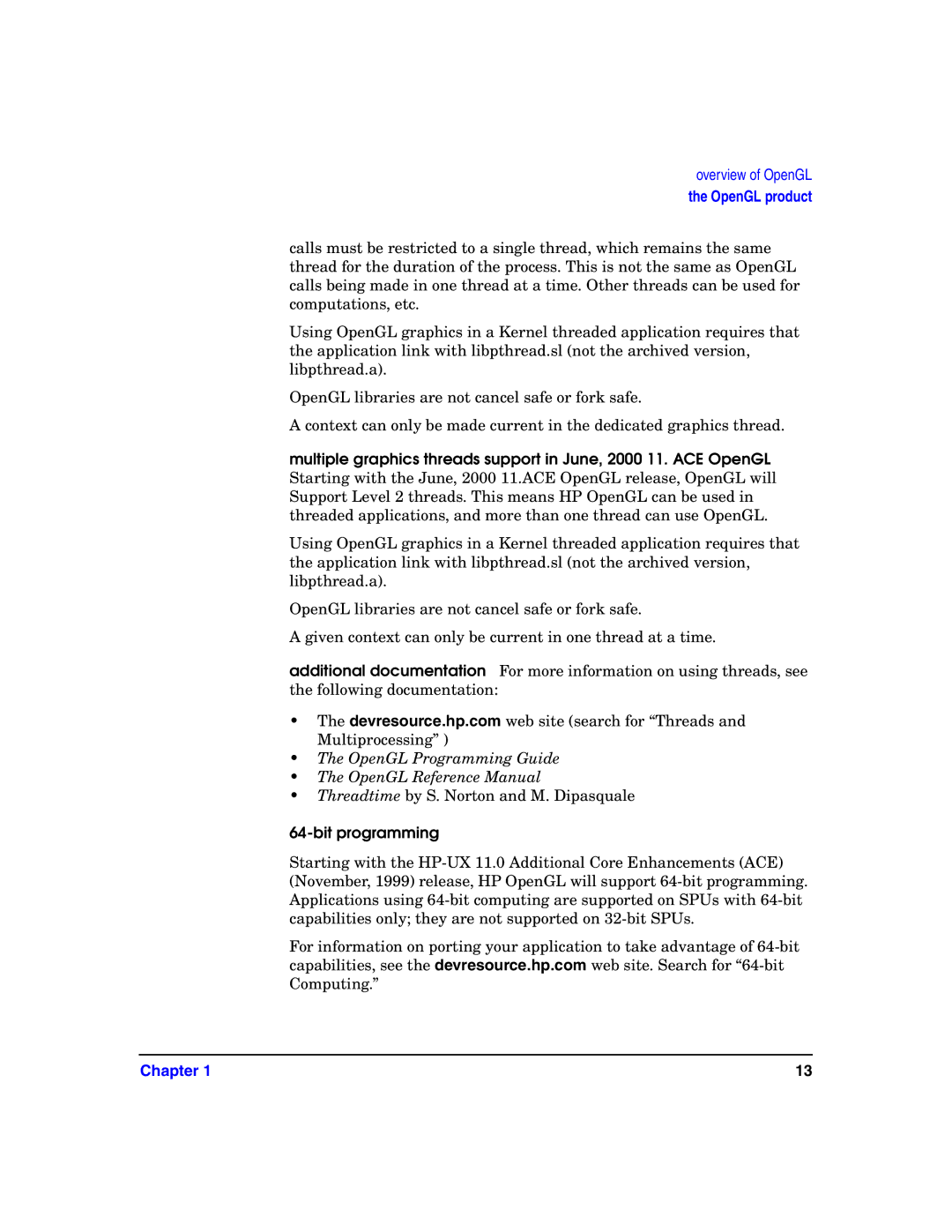overview of OpenGL
the OpenGL product
calls must be restricted to a single thread, which remains the same thread for the duration of the process. This is not the same as OpenGL calls being made in one thread at a time. Other threads can be used for computations, etc.
Using OpenGL graphics in a Kernel threaded application requires that the application link with libpthread.sl (not the archived version, libpthread.a).
OpenGL libraries are not cancel safe or fork safe.
A context can only be made current in the dedicated graphics thread.
multiple graphics threads support in June, 2000 11. ACE OpenGL Starting with the June, 2000 11.ACE OpenGL release, OpenGL will Support Level 2 threads. This means HP OpenGL can be used in threaded applications, and more than one thread can use OpenGL.
Using OpenGL graphics in a Kernel threaded application requires that the application link with libpthread.sl (not the archived version, libpthread.a).
OpenGL libraries are not cancel safe or fork safe.
A given context can only be current in one thread at a time.
additional documentation For more information on using threads, see the following documentation:
•The devresource.hp.com web site (search for “Threads and Multiprocessing” )
•The OpenGL Programming Guide
•The OpenGL Reference Manual
•Threadtime by S. Norton and M. Dipasquale
64-bit programming
Starting with the
For information on porting your application to take advantage of
Chapter 1 | 13 |
